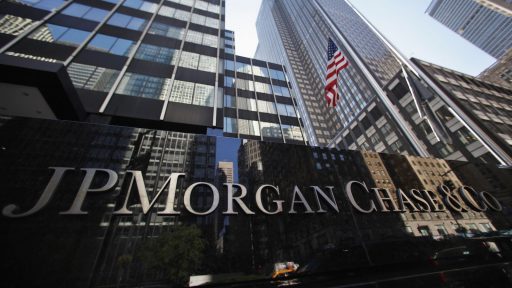- Home
- >
- Stocks Daily Forecasts
- >
- J.P. Morgan calls for a new kind of electronic traded funds (ETFs)

J.P. Morgan calls for a new kind of electronic traded funds (ETFs)

J.P. Morgan Chase & Co. is joining a long line of asset managers backing a new type of exchange-traded fund that mimics active strategies but keeps its investments secret.
The concept, designed by Precidian Investments, has so far been rejected by the U.S. Securities and Exchange Commission despite support from industry giants including BlackRock Inc., American Funds owner Capital Group Cos., and Legg Mason Inc., which owns a minority stake in Precidian. J.P. Morgan is expected to announce on Monday that it plans to license Precidian’s ActiveShares model.
Precidian’s ETFs would disclose stockholdings on a delay rather than daily, as traditional ETFs do. If approved, the funds could open a lucrative new business line for banks and asset managers whose investors are clamoring for ETFs, which trade on public exchanges just like company stocks.
The approval of the Precidian approach—dubbed “nontransparent” active ETFs in the industry—would pave the way for firms like J.P. Morgan, Invesco Ltd. and BlackRock to repackage their mutual funds and separately managed accounts into ETFs without giving away their proprietary trading strategies to potential copycats.
“We hear from advisers that they want our best capabilities in ETF vehicles,” said Bob Deutsch, head of ETFs for J.P. Morgan’s asset-management unit. “It will be no less transparent than a traditional mutual fund, and there won’t be the risk of front-running or reverse engineering.”
The Precidian case has been closely watched by asset managers, who have seen ETFs grow faster than mutual funds, driven by the tax advantages of ETFs and the lackluster performance of many actively managed funds.
Precidian’s approval could put a huge swath of investor capital within reach of the U.S. ETF industry, which has swelled to more than $2.4 trillion but is still dwarfed by the $16.2 trillion sitting in U.S. mutual funds, according to the Investment Company Institute, a Washington trade group.
“There’s a ton of money in active products that will find a better home in ETFs,” said Dave Nadig, chief executive of ETF.com, an industry publication owned by Bats Global Markets Inc.
The SEC has been skeptical of allowing nontransparent products because it would be difficult to assess the real-time value of an ETF’s stockholdings if investors don’t know what the fund owns. Precidian would post the real-time value of its holdings on exchanges. New share creations and redemptions would be routed through custodians who know what the fund is buying and selling but keep the trades specifics confidential, similar to how some mutual funds are handled today.
An SEC spokesman declined to comment. Precidian has been working with SEC staff to allay the regulator’s concerns, said Dan McCabe, Precidian’s CEO.
“It’s giving active managers the same flexibility to offer ETFs that passive investing has today,” said Mr. McCabe, who pointed out that Precidian ETFs would be no less transparent than many mutual funds are today.
The proliferation of new ETFs in recent years has made it hard for latecomers to set themselves apart from giants like BlackRock and Vanguard Group, who have been engaged in a price war that has made their funds among the cheapest in the industry. J.P. Morgan’s two-year-old ETF business has garnered just $1 billion in assets while its mutual funds have $265 billion.
Even if Precidian wins approval, it isn’t clear that investors will flock to active ETFs because they have consistently lagged behind their cheaper, passive competitors, said Mr. Nadig. Passive U.S.-listed equity ETFs returned 29% in the past year at an average cost of 0.62% while actively managed funds returned 19% at a cost of 0.92%, according to XTF.com, a research and advisory group.
 Varchev Traders
Varchev Traders Read more:
If you think, we can improve that section,
please comment. Your oppinion is imortant for us.











